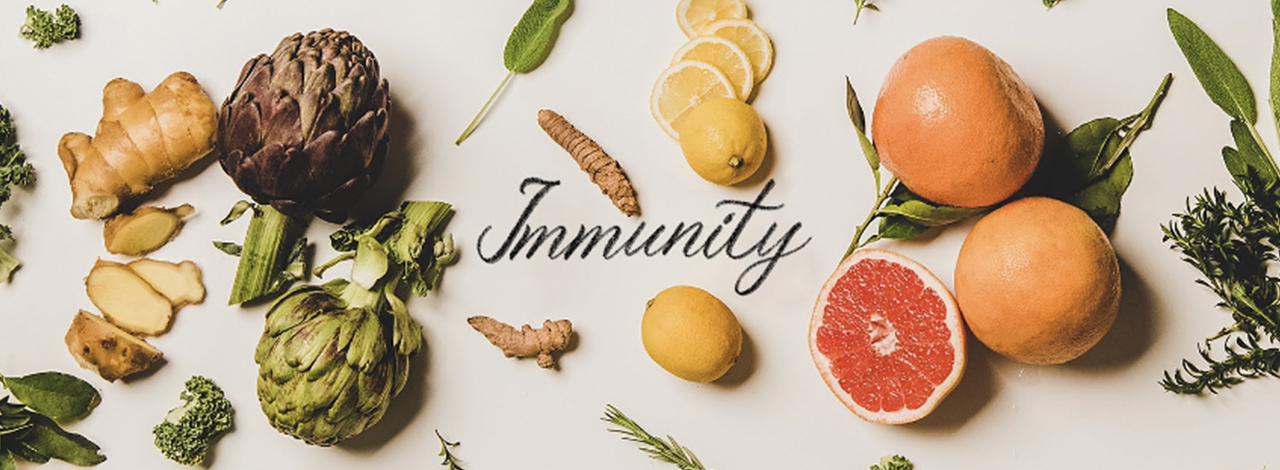Supporting the Immune System through Ancient Wisdom

Author: Puja Patel, ALC
As the winter continues and the weather becomes even colder, you may find yourself face to face with the common cold or flu. You may experience some sniffling or sneezing coupled with a runny nose or scratchy, tickling sensation in the back of your throat. When this happens, your natural instinct is to reach for your favorite over-the-counter medication to alleviate your symptoms. However, although the medication will make you temporarily feel better, it will neither shorten the duration of your illness nor cure it.
Ayurveda promotes a different solution to colds and flus, striving to support and invigorate the immune system and thereby equipping the body to heal quicker. According to Ayurvedic philosophy, the human body is composed of seven tissue layers, called the dhatus. These seven layers (rasa or lymph, rakta or blood, mamsa or muscle, medha or fat, asthi or bone, majja or bone marrow, and shukra or reproductive tissue) contribute to the body’s strength and vitality and are built by a final essence that weaves all the tissues together - ojas.
Ojas in Sanskrit means radiance, inner vitality, vigor, life juice, or immunity. It is the main source of strength, power, and natural immune resistance. It is a vital energy that runs through the bodily tissues, circulating through the heart to maintain resistance and thus aiding in the fight against illness and disease. It is said that those who are healthy have rich ojas, as ojas makes up many systems including the endocrine, nervous, digestive, skeletal, muscular, and hematopoietic systems. Additionally, along with protecting us physically, ojas also plays a significant role in our emotions, mental health, and joy.
Therefore, in Ayurveda, the key to a healthy immune system lies in maintaining strong, sustainable ojas. To begin optimizing your ojas this winter season, check out our six tips below.
-
Cultivate healthy agni (digestive fire)
Considered to be one of the 5 elements, agni’s main function is digestion, absorption, and transformation of food into energy. Agni works hand in hand to support ojas. There are several, easy ways to support healthy agni:
-
Follow a diet according to your dosha Eat seasonally. During winter it is suggested to eat warm, grounding foods and to avoid cold, heavy/difficult to digest foods.
-
Eat mindfully. Chew slowly and try to avoid negative distractions.
-
Maintain a consistent meal schedule.
-
Avoid eating late. Try to finish your meal two hours before your bedtime.
-
Dial in your sleep
Also called nidra in Sanskrit, your sleep habits should align with your dosha. Based on dosha, the amount of sleep hours, bed times, and wake times can vary from individual to individual. Without adequate sleep, the body cannot repair and rejuvenate itself which often times leads to poor digestion and metabolism, emotional imbalance, increased stress, and in turn poor immunity. To improve your sleep, consider implementing the following:
-
Set a regular sleep and wake routine, going to bed between 8:00-10:00 PM and waking up before sunrise
-
Avoid eating 2-3 hours before bed
-
Avoid naps in the afternoon
-
Avoid computer screens/watching TV before bed
-
Reduce stress
Recent studies have demonstrated that stress greatly impacts the immune system, a correlation Ayurveda has also established. Ayurveda suggests the following for stress reduction:
-
Engage in mindfulness practices like pranayama and yoga
-
Perform abhyanga (see below)
-
Listen to positive podcasts/read positive books
-
Avoid toxic relationships
-
Exercise
Exercise helps remove toxins from the body and additionally increases agni, thus reducing the risk of getting sick. Movement also allows for increased white blood cell circulation, which helps combat viral/bacterial illnesses. To determine which form of exercise best suits your dosha, check out our dincharya article
-
Perform abhyanga (self oil massage)
Abhyanga is a self-massage with warm oil applied from the head down to the toes. The oil is selected based on your dosha. It is said that abhyanga can remove toxins to restore vitality and invigorate the immune and lymphatic systems. For more information on how to implement abhyanga into your daily routine, read our dincharya article
-
Use Ayurvedic herbs
There are many Ayurvedic herbs that can help support the immune system. Along with turmeric, tulsi, and neem (explanation found in Herbsplaining Part I), the following herbs have historically been used to strengthen and maintain ojas:
-
Chyawanprash: Chyawanprash is an ancient Ayurvedic remedy made from Indian gooseberries (amla), herbs, and spices. Containing high levels of vitamin C, Chyawanprash helps strengthen agni, restore ojas, improve strength, and remove toxins from the body.
-
Ginger: Ginger is a beloved herb Ayurveda due to its agni enhancing properties. Additionally, ginger contains a compound called gingerol which exhibits anti-inflammatory and antioxidant effects. It is also an antimicrobial herb, known for its ability to prevent respiratory infections.
-
Sudarshan Ghanvati: Sudarshan Ghanvati is an Ayurvedic formula that has been used for centuries to revitalize the immune system, support the body against infections/allergens, while simultaneously strengthening liver and digestive function. You can purchase this traditional formulation renamed Immuno-aid through akshar ayurveda.
